Chop My Money (2015)
Genre : Documentary
Runtime : 13M
Director : Theo Anthony
Synopsis
A day in the life of three street kids in the Eastern Congo. Featuring music by Dirty Beaches.

In Paris, in 1942, on a Thursday, the Parisian police herded together some 13,000 Jews for deportation to German territory. In this story, Paul (Christian Rist) is a teenager who tries to prevent this from happening. At first he attempts to save two elderly Jews, but they are resigned to their fate and comply with the order to assemble. For a short while, he is able to keep Jeanne (Christine Pascal) from joining them, but, after a long and strenuous day, she finally escapes from him he is too tired to chase after her.

The story begins with an experiment. A filmmaker in the country of Georgia posts an ad inviting youth to audition for her film. Facing the camera, the hopefuls confess their struggles and dreams. These raw interviews unfold seamlessly into cinematic slivers of Georgian life.

Perhaps the most ebullient “musical” you’ll see this year, Marc-Henri Wajnberg’s singular documentary/fiction hybrid follows a group of street children in the Congolese capital.
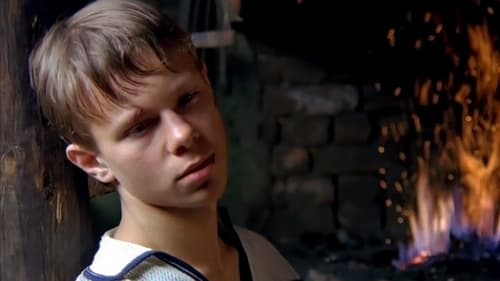
The story takes place in a small village on the beach of Sea of Azov at the beginning of 1960s. Adolescents passionately dream of love about which they have heard from their elder experienced friends. 16 year-old Ignat is the first to find out what the real feeling is. His love for an adventuress who pretends to be a singer from capital becomes destructive.

Matei lives with his grandfather in Romania. His parents have gone to work in Italy. After arguing with his grandfather, he leaves. A poignant, beautifully shot film on the illusions and disillusionments of childhood.

“My best friend, Anna, asked me if I would mind taking her fifteen-year-old son Itvan to Berlin with me. I accepted immediately.” An elegant, refined man in his forties sets off with Itvan on a long, enjoyable journey, his Winter Journey. They cross snowbound Germany by car. As the man drives the boy through cities and countryside, Itvan discovers the past and the vast job of reunification now underway. Poetry and culture are also part of the journey, which is accompanied by classical German music. When their paths cross with the man's former lovers or the journey provides unexpected encounters, Itvan also gets to know more about the man's own life. When they finally arrive in Berlin, their ways must part. Itvan watches the man leave, taking the melancholy of his existence with him. However their journey together has created an unbreakable tie between the two men. Itvan will never be the same again.
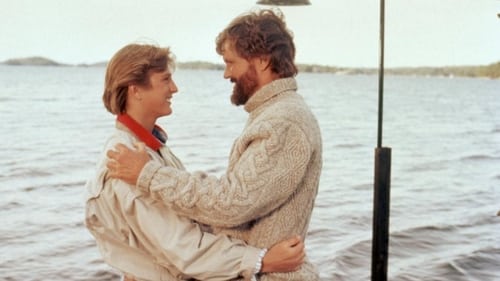
An Air Force officer returns to his father, son and remarried wife in Vermont after 17 years in Vietnam.

Alejandro Gerber Bicecci's "Vaho" (Becloud) tells the story of three childhood friends, Andres, Felipe, and Jose, and their lives in a dusty, run down corner of Mexico City. The boys were inseparable until they witnessed a tragedy that haunts them to the present day. The tragedy shaped each boy differently, and had a profound effect on their lives.

A group of boys, roughly seven to eleven years of age, go skinny-dipping in a river near their small Mexican town one afternoon and there find themselves the butt of an old vagabond's practical joke, the man stealing all their clothes from them. Humiliated about having to walk home in the buff, the tykes decide to get even, declare war. Yet, as the generations battle it out, a mutual respect develops, the depth of which is evident once the man has a heart attack during one of his romps with the kids. Will the boys' older pal recuperate so that they can engage in one final battle.

If the scorpion could see and the viper could hear, there would be no escape". The viper is deaf and the scorpion can't see, so it is and so shall be, the same way the countryside is peaceful and the city bustling and the human being impossible to satisfy. Lacrau demands the return "to the curve where man got lost" in a journey from the city towards nature. The escape from chaos and emotional void we call progress; matter without spirit, without will. The search for the most ancient sensations and relationships of mankind. The amazement, the fear of the unknown, the loss of basic comforts, loneliness, the meeting with the other, the other animal, the other vegetable. A dive looking for a connection with the world. Where beginning and end are the same, but I am not.

In 1939, José Garcés is in French prison camp after the defeat of Spain's Republicans. To entertain and inspire his fellow prisoners, he tells the story of becoming a man in 1919, the year he realized that learning to live is the same as learning to die. His stiff and demanding father loses a fortune in German war bonds, takes a job in Caspe, and leaves José on his own in Zaragoza to finish high school while apprenticing in a pharmacy. José courts his beloved Valentina via letters, becomes intimate with Isabel, a maid he meets in a cinema who shares his ideas of free love, and comes under the influence of El Checa, an anarchist and gentle teacher who leads a doomed revolt.

A young Jewish boy travels europe in search of the grave of his Great Grandfather who was killed by the Nazis in the War.
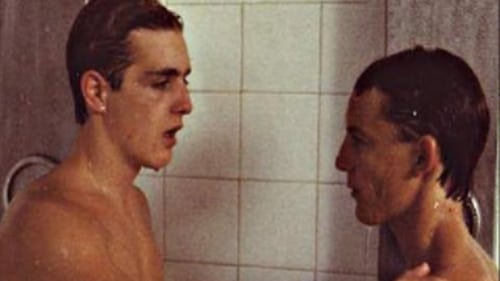
Matthew is a boy who just left school. He is handsome and athletic and believes himself to be gay. He retains a friendship with only one school friend, Phil, who has stuck by Matthew despite hostile reactions from his peers. As their relationship grows more intense, Phil's girlfriend Sharon and his classmates become vindictive and aggressive. The two friends find themselves ostracized by both friends and family and decide to run away.
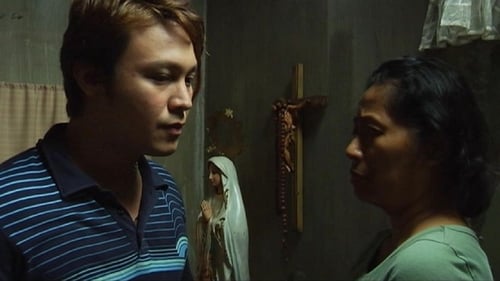
Jay is the name of the two protagonists in the film, one is living, the other dead. The living Jay is producing a documentary of the dead Jay, a gay teacher who was brutally killed. As Jay recreates and examines the life of his subject, his own life is affected when he unravels his subject's hidden life and secret love.

The screen story of four teenagers, on whom the horrors of war had left an indelible mark. Their relatives’ deaths and their yearning for fighting the Nazis led them, one way or another, to a sea cadet school that had been opened on Solovetski Islands at the start of the war. This film tells of men’s friendship, the boys’ first baptism of fire, and the victory…
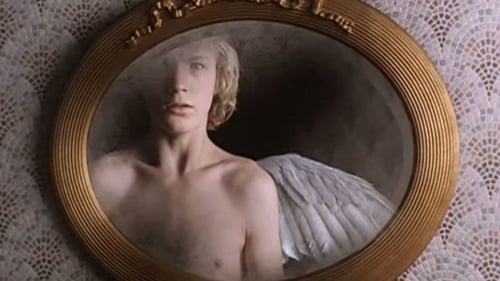
Surreal tale of a 14 year-old boy who dreams of escaping the loneliness from an unhappy home & sexual abuse (from his mother's boyfriend who is also his school swimming coach). One day his back mysteriously sprouts feathers and he can metaphorically fly away from it all.

In the Lesotho highlands, a 15-year-old boy tends his family's flock of sheep alone through the winter. His younger brother might have to quit the village school to help him. And two girls attempt to maintain their unique friendship when one of them goes off to attend a better school and the other stays in the village. Over the span of two years the film accompanies four teenagers in an isolated mountain village on their path to adulthood - a path between individuation and tradition.

The story takes place in the summer of 1995 outside of Gothenburg, Sweden, during the rise of Neo-Nazi violence that was sweeping across the country. The film "John Hron" is the true story about a teenager, his friends and family. John is caught up in defense of a student being bullied in school. As the conflict with the bully escalates it soon causes strain between John and his friends.
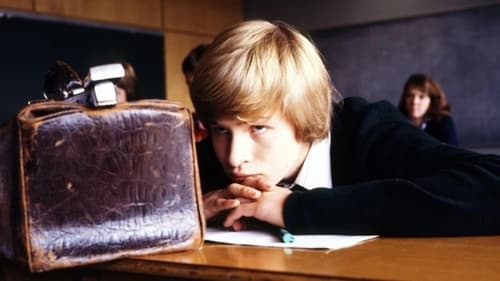
15-year-old Moritz lives in a posh area of Hamburg, but his parents did not care about it. The teenager suffers from ridicule of his classmates and finds refuge in his dreams and playing the saxophone. Only when he joins a band and began performing there Moritz pulled out of the vicious circle, and finds love with new friends...

Although he was once a colonel in Argentina, the principal character in this film is now a wealthy exile living in Paris with his beloved wife, who has been unable to bear children. To fill this void in their lives, he feeds and clothes abandoned children, raising them in his mansion as if they were his own. As would never be the case in real life today, in this fantasized story set in 1925, no one objects to this behavior, and they live pleasantly and enjoyably together. Things grow considerably more animated when a stage magician places his very attractive daughter in the colonel's household, which stirs a lively romantic interest from his boys and from the great man himself.



















